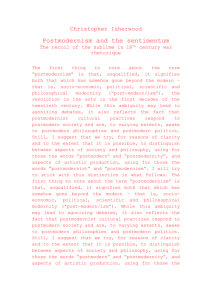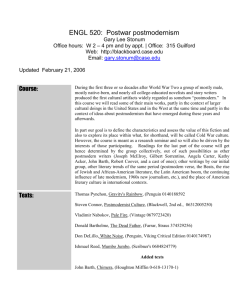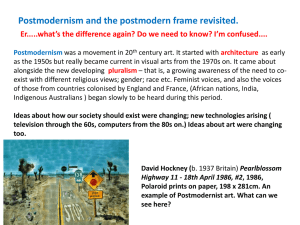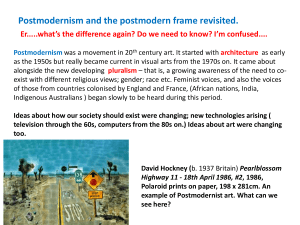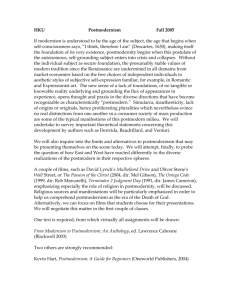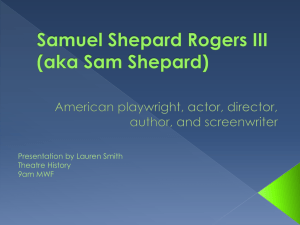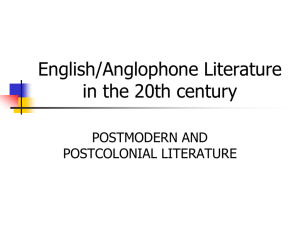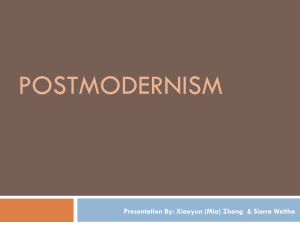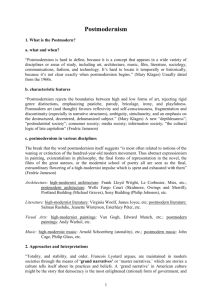dilemma culture
advertisement
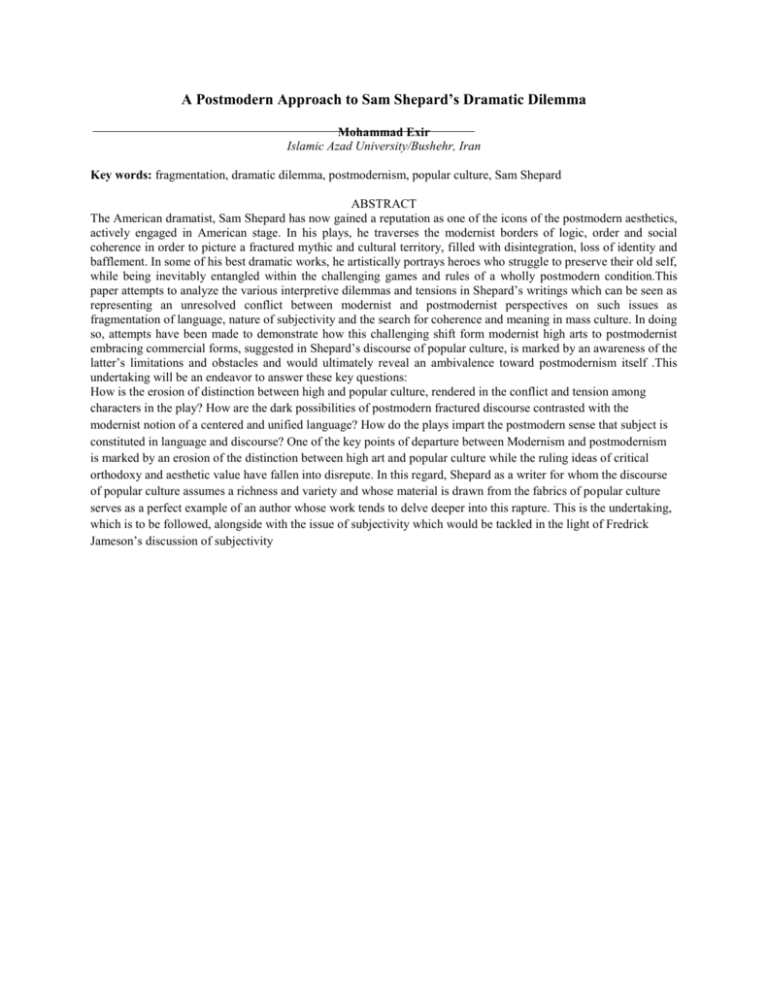
A Postmodern Approach to Sam Shepard’s Dramatic Dilemma Mohammad Exir Islamic Azad University/Bushehr, Iran Key words: fragmentation, dramatic dilemma, postmodernism, popular culture, Sam Shepard ABSTRACT The American dramatist, Sam Shepard has now gained a reputation as one of the icons of the postmodern aesthetics, actively engaged in American stage. In his plays, he traverses the modernist borders of logic, order and social coherence in order to picture a fractured mythic and cultural territory, filled with disintegration, loss of identity and bafflement. In some of his best dramatic works, he artistically portrays heroes who struggle to preserve their old self, while being inevitably entangled within the challenging games and rules of a wholly postmodern condition.This paper attempts to analyze the various interpretive dilemmas and tensions in Shepard’s writings which can be seen as representing an unresolved conflict between modernist and postmodernist perspectives on such issues as fragmentation of language, nature of subjectivity and the search for coherence and meaning in mass culture. In doing so, attempts have been made to demonstrate how this challenging shift form modernist high arts to postmodernist embracing commercial forms, suggested in Shepard’s discourse of popular culture, is marked by an awareness of the latter’s limitations and obstacles and would ultimately reveal an ambivalence toward postmodernism itself .This undertaking will be an endeavor to answer these key questions: How is the erosion of distinction between high and popular culture, rendered in the conflict and tension among characters in the play? How are the dark possibilities of postmodern fractured discourse contrasted with the modernist notion of a centered and unified language? How do the plays impart the postmodern sense that subject is constituted in language and discourse? One of the key points of departure between Modernism and postmodernism is marked by an erosion of the distinction between high art and popular culture while the ruling ideas of critical orthodoxy and aesthetic value have fallen into disrepute. In this regard, Shepard as a writer for whom the discourse of popular culture assumes a richness and variety and whose material is drawn from the fabrics of popular culture serves as a perfect example of an author whose work tends to delve deeper into this rapture. This is the undertaking, which is to be followed, alongside with the issue of subjectivity which would be tackled in the light of Fredrick Jameson’s discussion of subjectivity
